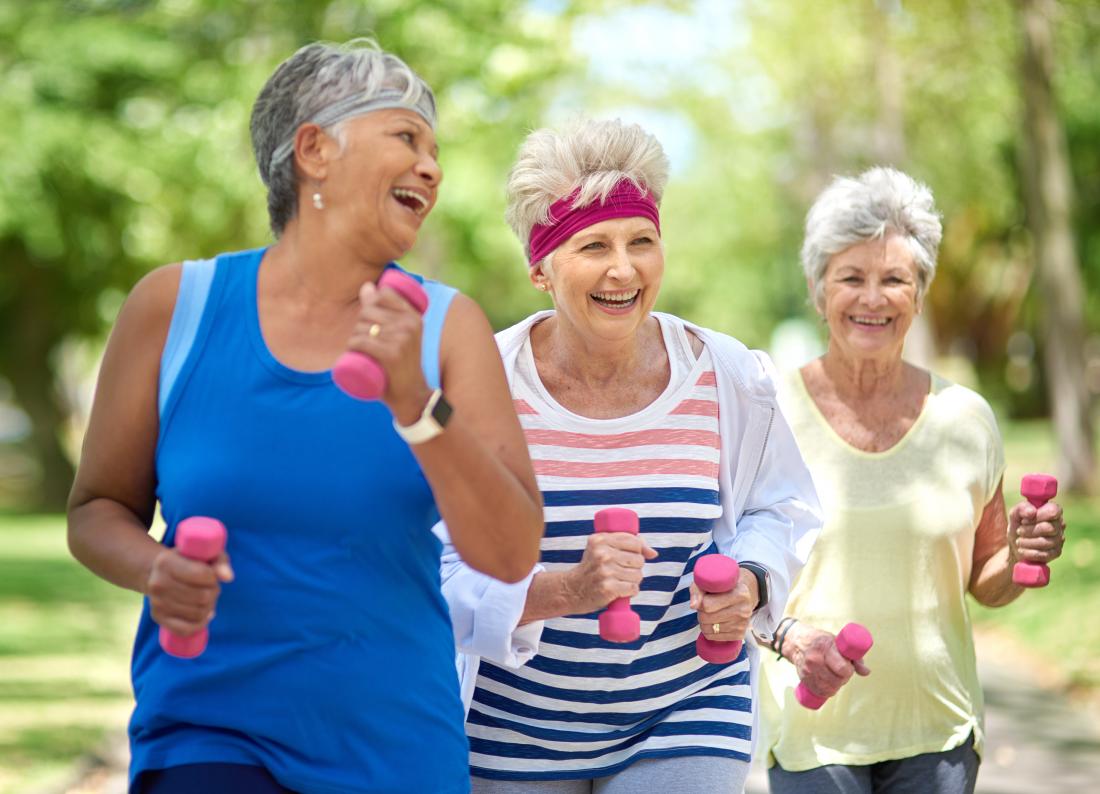 10 Top Tips for Exercising as you get older Exercise and Physical activity is not just for the young, but important for any age. 1. Consult with your doctor first Before starting an exercise program or increasing the intensity of your exercise program it is important to visit your GP and have a check of your blood pressure, cholesterol and heart health to ensure you are in a healthy condition to embark on a new exercise program. They can also refer you to the best possible person to support you – an Exercise Physiologist. 2. Reduce Alcohol As we age our body can react differently to alcohol. By reducing your alcohol you are able to reduce the risk of long term health issues such as cancer and heart issues, and it can also help to reduce your overall energy intake, helping you to lose weight. 3. Find what motivates you Find something that resonates with how exercise will help you, such as improving your golf game, being able to run around with and after the grandkids, or maybe it might be helping you to get down a little bit better to release that winning bowl. Whatever it is, use that as motivation, and in the process you will be improving your overall health and living longer! 4. Weight Training is not just for the young! Weight training as an essential exercise for every age and you don’t need any equipment as you can use your bodyweight for exercises like squats, push-ups, or step ups. These will all help to increase muscle tone, maintain strength and help to maintain a healthy body weight. Weight training can also help to reduce the risk of injury, falls and fatigue. 5. Get Social! Exercising with friends can be fun! Not only will you feel better from exercising, but you are more likely to keep it going. Even exercising with a buddy can help keep you accountable ensuring you both get your body moving and heart pumping. 6. Hit the water! Hydrotherapy is a type of exercise therapy done in a heated pool. You can undertake it by yourself by doing a walking or resistance program, or join an aquafit class. The benefit of heated pools is that gentle, controlled movements in warm water allows people to steadily progress their range of movement, and the buoyancy means that your weight is partly supported so great for people with lower limb and back conditions.. 7. Balance is a key component!: As part of your overall exercise program it is important to challenge your balance. This helps to enhance your overall awareness, coordination, maintain muscle activity and tone, and help to prevent falls which can result in injuries, and unfortunately are very common as we age. 8. Try new things There is no one size fits all exercise for everyone. There’s a wide selection of exercise or physical activity you can undertake from swimming, line dancing, bowls, walking soccer, walking the dog, the list goes on! The trick is finding something you enjoy and that you will stick to. 9. Monitor your intensity Exercise is a great way to keep your heart happy and healthy and it’s a good idea to pay attention to your heart rate during exercise, but there are some cardiac medications which alter our heart rate response to exercise, so another way to monitor our intensity is just by how we feel and the talk test. If you can sing, it’s light intensity, if you can’t sing, but can talk constantly, it's moderate intensity, if you’re puffing and struggling to talk, it's high intensity. Work at the intensity that’s right for you. 10. Recovery is important People find that their body does not recover quite as quickly as it once did so it’s important to take it easy and to allow yourself some recovery time. When we exercise, our body undergoes change to adapt to the stress that we place on it. This can result in some muscle soreness (known as delayed onset muscle soreness), fatigue and reduced muscle strength and power, so allowing your body to rest and recovery, including getting adequate sleep and hydrating is very important. Lisa Parkinson Accredited Exercise Physiologist
0 Comments
Your comment will be posted after it is approved.
Leave a Reply. |
AuthorSLisa Parkinson Archives
March 2024
Categories
All
|

 RSS Feed
RSS Feed